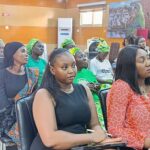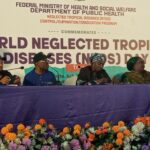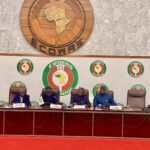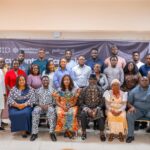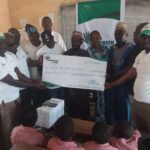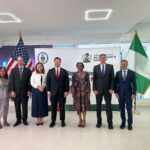By Funmilayo Adeyemi
As Nigeria joins the rest of the world in commemorating the 2023 International Literacy Day, the Federal Government has reiterated its commitment
towards addressing the scourge of illiteracy in the country.
The Minister of Education, Prof. Tahir Mamman, disclosed this during a news conference in Abuja on Friday to mark the day.
The News Agency of Nigeria (NAN) reports that the theme for the 2023 commemoration is tagged: “Promoting literacy for a world in transition: Building the foundation for sustainable and peaceful societies”.
The minister said it was essential to effectively explore the patterns of transformation and adjustment that had characterised education globally as a result of its ever-increasing scope and paradigm.
“Specifically, it awakens our consciousness to the need to continually make required adjustments in our approach to literacy delivery with a view to meeting the current global trends.
“The ministry would continue to leverage on the existing progress and transformation in the development of literacy while setting the stage for lifelong learning of the Nigerian adults and youths.
“We would continue to rethink the fundamental importance of functional literacy as a necessary panacea that will help build resilience and ensure quality, equitable and inclusive education for all,” he said.
Mamman added that eliminating illiteracy from Nigeria is a top priority of the Tinubu-led administration, adding that the ministry would work hard to achieve this.
“We have a new government in place. This government is determined to do things differently to make Nigeria achieve what it has not achieved since independence.
“The matter of illiteracy is one of the top priority of the president which we put forward at the Federal Executive Council (FEC) meeting. The President does not want a single Nigerian to remain illiterate .
“Illiteracy is a scourge, a disease and we are not going to allow it to continue. We have the directives of the president and our own personal resolve.
“In days and weeks ahead, we will be engaging the public, we have policies on ground but what has been tye problem is the delivery of those policies. We will not allow any obstacles in our ways from achieving this goals,” he said.
In the same vein, Dr Stephen Onyekwelu, National Programme Officer and Literacy, UNESCO Regional Office, Abuja, said that UNESCO had supported Nigeria in developing the Ministerial Strategics Plan to address illiteracy.
Onyekwelu said it had also supported the country through the spotlight initiative where over 200,000 women and girls have acquired the basic skills of reading and writing and some mainstreamed back to school, while some were provided with skills acquisition.
He added that UNESCO had supported the ministry in reviewing the HIV policy and currently supporting the mass literacy , adult and non-formal education in reviewing the policy guidelines for non-formal education in the country.
While reading the message of the Director-General of UNESCO, Audrey Azoulay, he said the world had achieved significant strides in closing the illiteracy gap, adding that UNESCO would continue to support the literacy efforts in countries all over the world.
“In the space of 40 years, significant progress has been made. 3.6 billion people have learned to read and write, raising the global literacy rate from 68 per cent in 1979 to 86 per cent in 2020.
“However, the current situation is still rife with injustice and inequality. At the halfway point in the 2030 Agenda for Sustainable Development, 244 million school-age children are still not in school.
“98 million of them in sub-Saharan Africa. At the same time, 773 million adults still cannot read or write-two thirds of them women.
“Over and above illiteracy, learning gaps still too often lead to incomplete literacy: six out of ten children attending school at the age of ten cannot read and understand a simple text,” he said.
Speaking on behalf of the Executive Secretary, National Commission for Mass Literacy, Adult and Non-Formal Education, Prof. Simon Akpama, the Director, Planning Research and Statistics in the Commission, Mariam Khalid, stated that the organisation is liaising with the National Population Commission and other stakeholders to ascertain the data of Nigerians that are not literate.
She added that the commission was also utilising available resources to play its role in reducing illiteracy among youths and adults to the barest minimum.
NAN reports that over 56 million of the country’s population are still unable to read and write, hence the current high statistics of non-literate population alongside the number of out-of-school children calls for concern.
It is however important that in eradicating the scourge of illiteracy, there must be improved funding, adequate resources and better attention to the non-formal education sector. (NAN)(www.nannews.ng)

